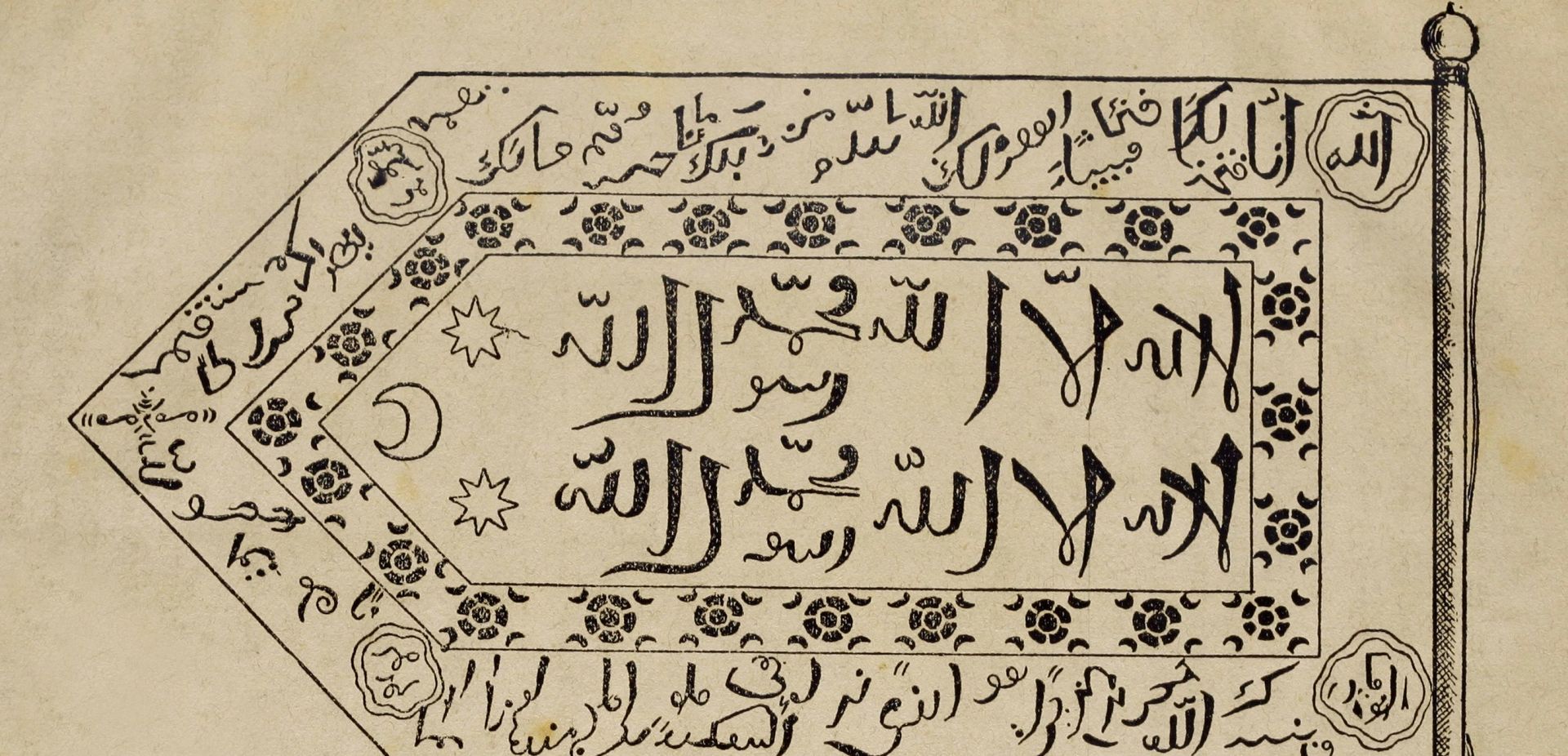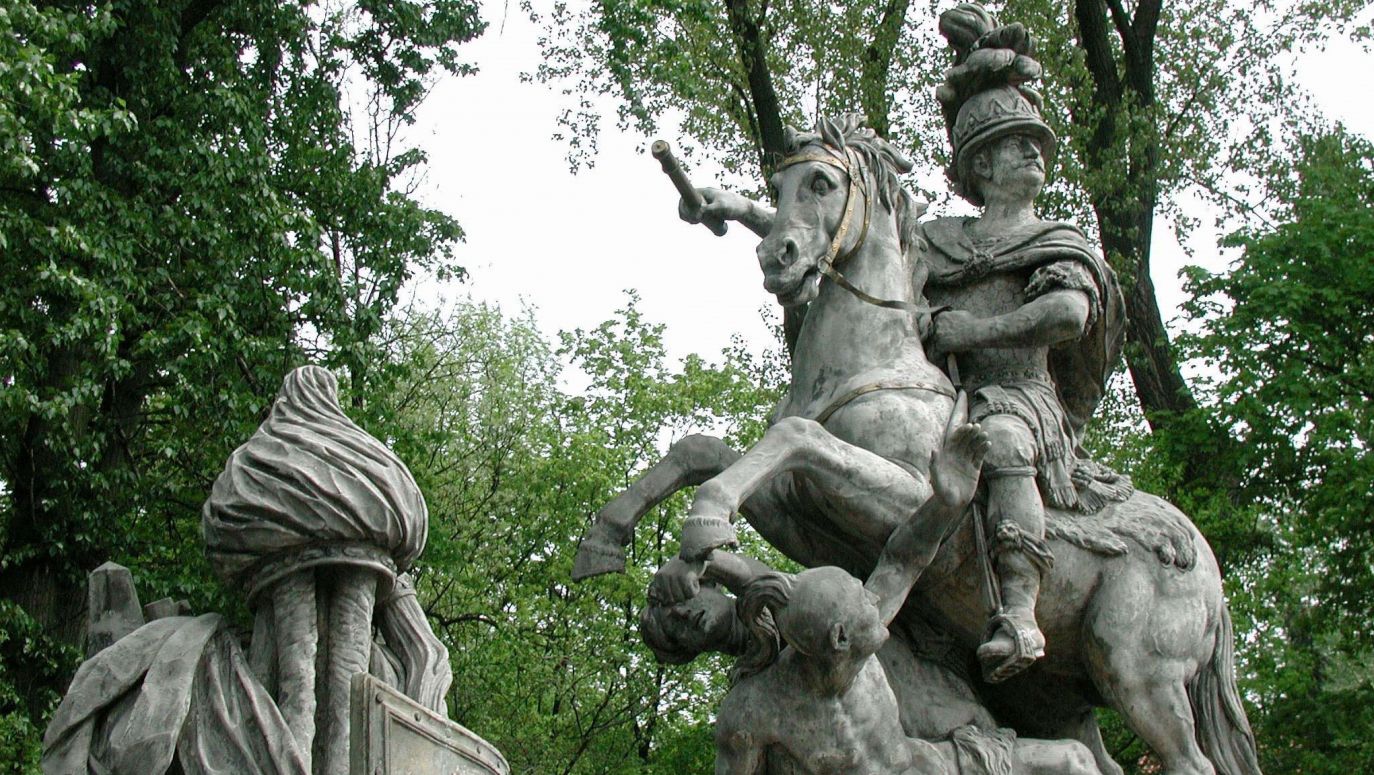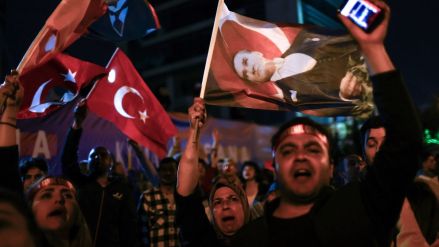TVP WEEKLY: Is the Battle of Vienna really a significant defeat in Turkey's history or just one of the many battles the empire has fought in its past?
PROF. MESUT UYAR: Well, the Siege of Vienna is an important date, considered by some to be a turning point. However, the real damage was done by the Holy Alliance Wars afterwards which lasted until 1699. In Turkish historiography or historical narrative, we focus more on how the Ottoman army prepared for the siege of Vienna, how the army reached Vienna, how the siege began, how it developed, and so on and so forth. And we study the Battle of Kahlenberg as part of the defeat of the siege so not something separately.
Interestingly when the Polish and other Allied troops reached Vienna, the Ottoman commander Mustafa Pasha did not remove and send all his troops to oppose the Polish army. He sent just two thirds of the available troops. That was about 28,000 soldiers. They were sent not as a whole group but in pieces. Therefore, the famous Battle of Kahlenberg was basically not a standard set piece battle but actually a group of small clashes.
 SIGN UP TO OUR PAGE
SIGN UP TO OUR PAGE

Both the Ottomans and the Poles were unable to effectively control their units as the Polish units also entered the battle gradually. Like I said the Ottoman units participated in the battle whenever they reached the battle site. So it was a somewhat confusing series of clashes. In the end, the Ottomans were defeated because not only they did not concentrate all the available forces but also their allies including Crimean Tatars and the Hungarians fled.
Kara Mustafa Pasha tried to withdraw the remaining troops besieging Vienna, and eventually a disorganized retreat began, leaving behind all the heavy equipment, tents, treasures, and so on. And this turned out to be a stroke of luck for the Ottomans, because the allied troops, including the Polish, instead of following their success and trying to crush the retreating Ottoman army, changed direction and started looting the camp site. This gave the Ottomans time to retreat again. So in our historiography we see Kahlenberg as part of the second Vienna siege, unlike your case.
Why did Sobieski move to Vienna in 1683 to relieve the Habsburgs? It is generally believed that it was even a Catholic crusade, but this is not quite true?
In the beginning it was not a crusade. Because when the Ottomans decided to undertake this expedition, they thought that they had once in a lifetime opportunity, because there was a serious Hungarian uprising against the Habsburgs led by Emeric Thököly. So the Ottomans wanted to exploit this Hungarian problem against the Habsburgs and saw it as a window of opportunity. And they started the campaign in great secrecy. Most of the high ranking officers was not aware that they were heading to Vienna. They thought that the army would once again attack the famous fortress of Györ. But just before reaching the border, the commander-in-chief Mustafa Pasha declared that their real goal was the city of Vienna.
The campaign was one of the biggest ever undertakings. Thousands of soldiers were transferred from Anatolia and even from Syria and Egypt. At the same time, thousands of local soldiers from the Balkans joined the army on the way, including Christians, of course, most of the Christian units engaged in logistics, transportation and auxiliary services and not directly involved in the battle, but there were also fighters, fighting Christian units. And Emeric Thököly with his Hungarian rebels also joined the army. So it was a multinational and also multi-religious army.
After the defeat of Vienna and when the Ottomans suffered several smaller defeats after Vienna, the Habsburgs were able to find new allies: the Russians, the Venetians, the Poles and some others. And it became a kind of holy alliance against the Ottomans. And it changed its color from a dynastic imperial war to a kind of religious crusade against the Ottomans, to drive the Ottomans out of the northern parts of the Danube, to drive them out of Hungary, but also from the Danube river. That was another story. So in the beginning it was not a religious war.
If you read today's literature, you get the impression that the defeat of the Ottomans was inevitable.
In reality, however, this was not the case. Militarily the Ottomans were superior, the problem was the leadership and excessive confidence. The commander-in-chief, Mustafa Pasha, was very confident of himself.
He was very sure of victory. He did not pay attention to the signs of the Poles and others who were gathering troops around Vienna. He acted very slowly and did not pay attention to some security measures. For example, he did not establish lines of contravallation around the siege to protect the troops. Similarly cavalry focused on raids instead of screening the sieging force against sudden enemy attacks. The Ottoman paid dearly for this over confidence in the end.
Don’t forget when the Poles and others appeared the Ottomans were already penetrated into Vienna city walls and preparing for a final assault to capture the city. So against all mistakes and delays they were within the reach of the victory.
The other greatest weakness of the Ottomans was diplomatic and foreign relations?
The major shortcoming of the Ottoman plan to capture Vienna was not the military but neglecting foreign relations and ignorance about the current diplomatic balances in Europe. The Ottomans did not believe that the Poles would join the Habsburgs because they thought that just like themselves the Poles a had the same; the Habsburgs and the Russians.
In reality, the Ottomans did fight the Poles in the 1670s, but they thought that it was an old affair happened ten years ago. The strategical balance in East Europe changed with the rise of Russia. The Russians were creating big problems for the Ottomans for the Poles. So they did not expect that the Poles would help the Habsburgs to save them from certain defeat. So this was a big surprise for the Ottomans.
And that was the mistake of the Ottoman diplomacy, which was not aware of the current foreign policy balance in Europe.
From today’s point of view, did our king make a strategic political mistake?
Well, I think it was more than a mistake. It was a kind of suicide. I mean, and to tell you the truth, I know better ways to commit suicide (laugh). The Poles came to the aid of the Habsburgs because of their wrong calculations and, unfortunately, they paid for their mistake in later decades. Well, I think the best title would be "Self-Inflicted Injury" or "Polish Suicide." But they did it. The military help of Sobieski, was instrumental in changing the balance in front of Vienna walls.
Without the Polish units, the Habsburgs would not have been able to drive out the Ottomans. And it should not be forgotten that the Ottomans had already entered Vienna, captured some parts of the defenses and invaded southern territories of the Habsburgs and burning rest of it. Emperor Leopold had already fled Vienna and morale and motivation were collapsing. So, militarily, Polish help was crucial to the victory of the Habsburgs and the others. It was a tactical victory in 1683 and became a strategic one after 16 years of wars in 1699.
It was not always the case that the Ottomans were defeated. From time to time, the Ottomans managed to repel the attackers, won some military victories and defended their territory for an extended period. I mean, as an example Budapest was besieged twice. The first time, in 1683 the Ottomans were able to hold out for more than hundred days and beat back the besieging army, then they came again and were able to take Budapest after 70 days of siege in 1686. So it was not a simple story of series of the Ottomans defeats again and again after Vienna.
At the beginning the Poles were very important for the war effort. But that was not the case after 1683. Many other actors entered the war, including the Venetians. So in addition to land battles, there were naval battles for Greece and so on.
Thus, the Poles lost their dominant role in the war. They became one of the allies in the fight against the Ottomans. But in 1683 they were the dominant factor. The Poles were the dominating factor for the victory over the Ottomans in that particular year. But this was not the case after that.
Why would a victory over the Ottomans be harmful to the Crown of the Kingdom of Poland and Lithuania?
The answer is simple. The Polish-Lithuanian Commonwealth helped to push the Ottomans out of the military balance in Eastern Europe. Imagine Poland now facing the Habsburgs in the west and the Russians in the east. I do not think Sobieski or other Polish leaders really thought of that. They paid no attention to the cost of absence of the Ottoman military in the Eastern European balances.
I mean, think about it. If the Ottomans still had the offensive power after 1699, would the Habsburgs and the Russians operate as freely in Eastern Europe as they did? Of course, they would not. The Ottomans would intervene immediately.

 SIGN UP TO OUR PAGE
SIGN UP TO OUR PAGE
 Both the Ottomans and the Poles were unable to effectively control their units as the Polish units also entered the battle gradually. Like I said the Ottoman units participated in the battle whenever they reached the battle site. So it was a somewhat confusing series of clashes. In the end, the Ottomans were defeated because not only they did not concentrate all the available forces but also their allies including Crimean Tatars and the Hungarians fled.
Both the Ottomans and the Poles were unable to effectively control their units as the Polish units also entered the battle gradually. Like I said the Ottoman units participated in the battle whenever they reached the battle site. So it was a somewhat confusing series of clashes. In the end, the Ottomans were defeated because not only they did not concentrate all the available forces but also their allies including Crimean Tatars and the Hungarians fled. 





